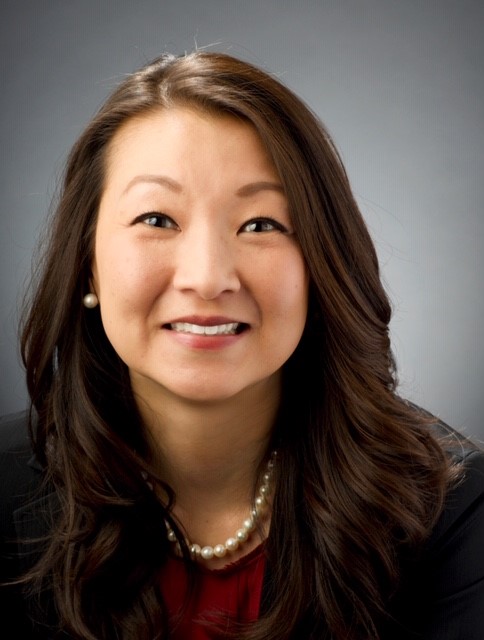
Kathy Kwak
Kathy Kwak splits her world into two different segments these days: before the novel coronavirus, and after. “I’ve been referring to pre- and post-COVID,” the vice president of title and escrow operations and counsel for Proper Title told Chicago Agent magazine. “It’s been a very interesting time.”
The tables have turned
The most visible change is in what the closing table looks like these days. In many cases, the table itself is proverbial; Proper Title has been conducting many of its closings curbside, in front of the two Chicago locations that are currently open in Bucktown and Irving Park. Once the closing is scheduled, Proper Title reaches out to buyers and applicable their attorney to confirm and find out how they would like to proceed.
Proper Title is looking to minimize exposure to their staff, so they’re encouraging buyers and sellers to provide a power of attorney to their respective lawyers so they don’t need to attend at all. For those who do plan to show up at the office for a curbside closing or to drop off documents, the company has been asking each person to complete and sign a health form that asks four questions about symptoms, recent travel, and other possible exposures to the novel coronavirus. “We want the minimum amount of people necessary to close a transaction,” Kwak said.
Here’s what the curbside closing looks like: Buyers and their agents show up in separate cars, met outside by a Proper Title closer, who will collect a buyer’s driver’s license, signature and cashier’s or certified check. Proper Title also offers similar services outside a borrower’s home. Before the closing, however, the buyer’s attorney must review the loan and closing documents. Also, buyers must obtain their lender’s approval ahead of time so that Proper Title is allowed to release loan documents to others.
Kwak did note that, while these procedures are much safer, the excitement of closing on a home is somewhat diminished. “This is a big moment for many buyers,” she said, noting that the pandemic has “taken away that whole ceremony … All of that now has been removed; it’s so robotic and routine now.”
Still, she encouraged brokers to find other ways to celebrate, especially for first-time homebuyers. “We can’t hug or celebrate in the normal way,” Kwak said. “[But] this is still your moment, and there are ways to celebrate this moment.”
Sifting through indemnities
Title indemnities allow the industry to forge on with closings even when it’s impossible to verify all the necessary items that are required to record a deed or mortgage, from water and zoning certificates to final water readings and transfer stamps.
To add another layer to the uncertainties, many suburbs outside of the city require a physical stamp verifying the payment of transfer taxes, so title agencies are having to make new guidelines per underwriters’ directives, to handle a transaction under the coronavirus-related shutdowns.
Kwak said Proper Title first reaches out to the applicable municipality to confirm how transfer stamps can be obtained. She said that, as of right now, the majority of the municipalities are allowing title companies to mail the required documents, along with the check for the transfer taxes, directly to the municipality’s clerk. Kwak noted that the new method of obtaining transfer stamps does introduce certain risks. “We are basically sending and overnighting a ‘live’ deed,” she said, noting that also that a “live stamp” is being sent back. “We are trusting the FedEx courier … As you can imagine, there’s a lot of uncertainty with that.”
For single-family homes or properties of five units or less in the city of Chicago, one of the requirements in order to record a deed is a zoning certificate. Currently, the Chicago zoning department is closed for in-person applications, however, there is a clerk who is currently handling new zoning applications via U.S. Mail. With the unknown turnaround times, Proper Title is holding an indemnity for zoning certificates until the certificate is returned to the company or the department is re-opened, whichever occurs first.
Being aware for new realities, but also thankful
Trying to work through a pandemic means the rules are fluid, which means industry professionals need to be nimble. One key change that Kwak is as-yet unsure about is the news that remote online notaries will be allowed during the governor’s state of emergency declaration.
Kwak is worried this will introduce more uncertainties, noting that Wells Fargo publicly stated that the bank will not accept closings that use this remote technology and that she expects other large banks will follow Wells Fargo’s lead. “We just got to a new normal with closings,” she said. “We’re really at the mercy of the underwriters giving us directives.”
Another possible concern is the fact that the pandemic may embolden hackers. Email phishing scams are nothing new for the title industry, but Kwak did note that she’s seeing criminals use words like “update,” “COVID-19” and other hallmarks of the language of the pandemic to try to catch people’s attention in a moment of quickly-developing news and extreme distraction. “I think that’s the new strategy. These fraudsters realize everyone is on high alert,” she said. “They know how vulnerable we are right now.”
While her work has gotten much more complicated due to the pandemic, Kwak was quick to highlight the positives. If this situation had happened 10 or 20 years ago, she said the whole industry would have come grinding to a halt. But thanks to advances in technology, life can go on, with a few key changes. “In 2020, that’s why we’re able to forge on,” she said. “We all should be grateful [for] the fact that we fall under essential services and we can still carry on.”